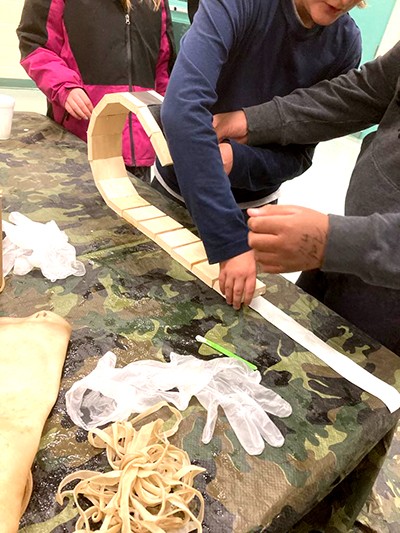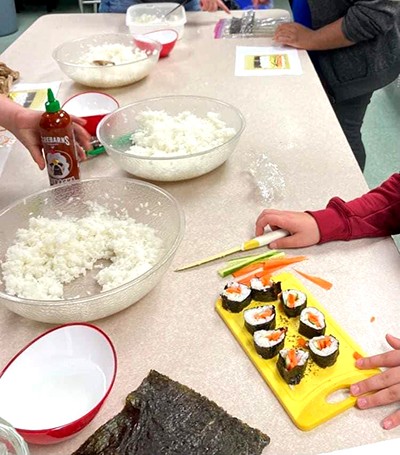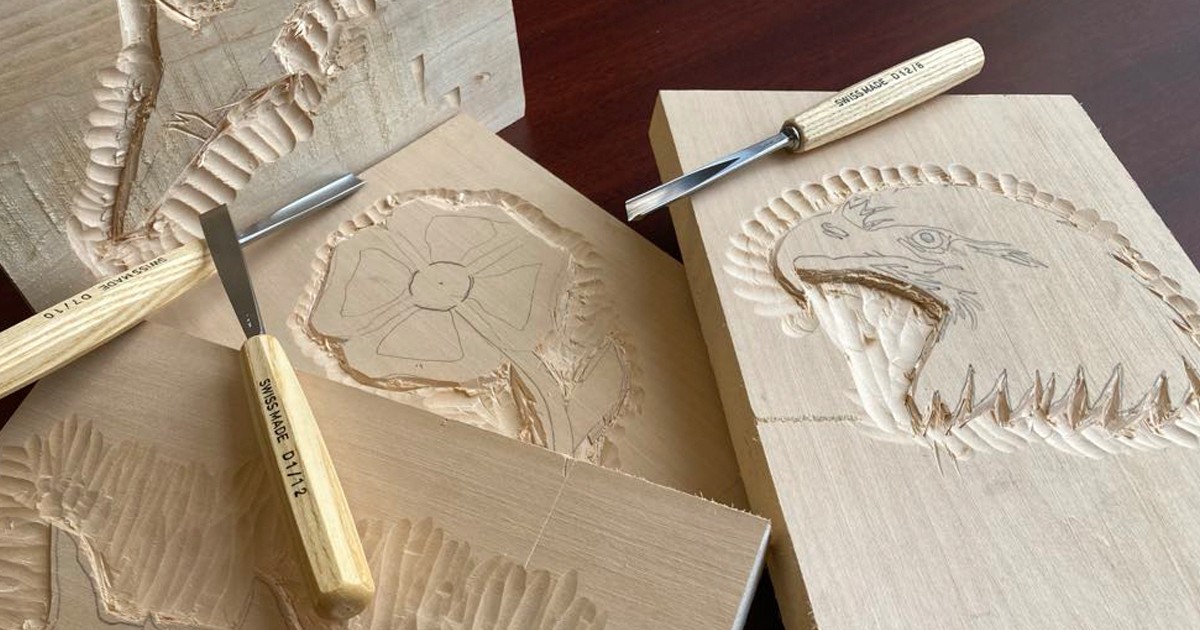When an opportunity for a new youth program emerged through The Salvation Army’s territorial innovation grant initiative, Majors Cindy and Curtis Butler, corps officers at Belleville Citadel, Ont., knew there was a gap in ministry that could be filled.
“We recognized that so many of the young people in our corps were gifted, but we were concerned that they did not have an outlet,” explains Major Curtis Butler. “We thought about ways that we could use their gifts as well as provide a social space for them.”
In the fall of 2023, Belleville Citadel launched a new life skills program, Sticks and Stones, designed to engage and develop the skills of young people in the community. Held every second Thursday evening, Sticks and Stones introduces youth to activities from woodworking to computer-building to sushi-making. But it is not just about teaching new skills; it fosters relationships within the corps and community, and integrates devotionals for spiritual development and mentorship.
“The hands-on, skills-driven nature of the activities is a good fit for kids this age,” says Holly VanRooy, a corps member and parent of 12-year-old participant, Jack. “The devotionals are relatable whether the kids have grown up in church or this is their first experience with faith-based conversations.”
“We Trust Them”

Sticks and Stones is divided into different age groups to cater to the specific needs and interests of the participants. Majors Butler decided to pilot the program first with a younger group of children from 11 to 14. One of the first activities they tried was woodworking— something that many of the youth had never done before.
“We bought chisels, gave them their own workstations and taught them to woodwork,” says Major Butler, who notes that the response was overwhelmingly positive from both participants and their families. “One girl didn’t think she was interested in it at first, but one day, as I was sitting beside her at the table while four of them worked on their projects, she said to me, ‘This is so satisfying,’ and she just got lost in chiselling the wood.”
The woodworking sessions were then extended to a group of older teens to young adults in their early 20s. “You take young people, give them tools, such as chisels and knives, and teach them how to make a piece of art with it, and it really respects their maturity and shows them that we trust them,” says Laura Scott, child and youth co-ordinator at Belleville Citadel.
“It was so much fun to watch them experience a new skill for the first time, and to see them really take ownership and get creative with it,” says Major Butler.

In addition to woodworking, Sticks and Stones later introduced a sushi-making session led by the chef at community and family services, as well as computer-building classes. A congregant that volunteers as a sound tech at the corps offered to teach participants about the process of taking apart and rebuilding a computer. “For them to be able to take away a lot of the mystery of computers and programming, examining it at the base level and learning to build one of their own, that was very cool for them,” says Major Butler. “You could see them really start to engage with it.”
A Great Way to End the Day
Jack joined Sticks and Stones because he thought it sounded like fun, and he heard that the group was doing activities that he wanted to try, such as building a computer.
“The collaboration was fun because everyone was involved in opening the parts and putting pieces in a computer that will be used for the church,” says Jack. “It helped us create a better live stream so that people can come to know God from their own homes.”
Before Sticks and Stones, Jack had never carved wood or started a fire using a string and stick. “We began the year with carving and made pictures engraved in a slab of wood. We used different types of chisels and techniques,” he explains. “Fire-making was really fun because we teamed up with a friend to use the fire-starting bow and worked hard together. We weren’t successful, but it was still fun.”
Jack’s mom, Holly, loves that her child has the opportunity to be mentored by other adults in the corps. “At this age it’s so important to have strong connections and role models, and opportunities to spend time with friends in positive ways,” she says.
Sticks and Stones has allowed Jack to strengthen friendships with other youth at the corps, and it also gave him time to get to know corps officer Major Butler outside of his role on Sundays, developing a connection in a less formal way.
Jack hopes that Sticks and Stones continues in the future. “It was a really calming end to my school day,” he says.
More Than Church
According to Major Butler, Sticks and Stones encourages interaction between young people of varying ages in a safe, positive, nonjudgmental space, and many of the youth have taken these friendships outside of the program.
“There can be a big difference between 11 years old and 14 years old. And our older group has 16-year-olds alongside people in their 20s, but they are so gracious to one another,” says Major Butler. “This is a safe space for them. They help each other out, they learn from one another. It enhances their lives. It’s not just an hour and a half at the church every other week. They’re creating a community that is beyond us.”
“I think it’s important within these age groups to show them that church is more than just a sermon on Sunday. It’s also a community,” says Scott. “And being able to put their hands to something tactile, intentional and skill-based is a really important way for them to develop and connect. Sometimes young people are easier to reach through doing, rather than just talking.”
Carving Connections
One of the key objectives of Sticks and Stones is to foster intergenerational interaction. According to Major Butler, this is an ongoing goal within the corps and its wider programming, including a recent community meal planned by high school students for senior members of the corps.
“We sat them next to each other—senior students and senior citizens—and encouraged them to learn more about each other and interact,” says Major Butler. “Topics many of them discussed were phones and technology. If the seniors had questions about their cellphones, such as how to move an app or delete a text message, the teens would help them. They enjoyed a meal together and there was a lot of learning and laughter.”
Since the start of Sticks and Stones, there has been positive feedback from parents, caretakers and grandparents who have expressed a desire to take part as well. “When they drop the children off and see what they are learning, whether it is woodworking or cooking, they’ve said to us, ‘I would love to do this, too,’ ” explains Major Butler, who is now looking at ways to extend the program to families and use it as a multigenerational ministry and gathering place for the community.
Belleville Citadel recently expanded its facility to house community and family services under the same roof as the corps. Now, Majors Butler hope that they can use the Sticks and Stones program to encourage broader engagement with the people they serve, both through the church and community and family services.
“We can put this program on display, advertising it in our community kitchen and dining spaces where we have a lot of young families coming through,” says Major Butler. The goal is to create a welcoming environment where community members can participate, learn new skills and develop a relationship with The Salvation Army.
Looking Ahead
“The territorial innovation grant was an opportunity for us to do something that we probably would not have done otherwise,” says Major Butler. Now, with growing interest in the corps and community, Belleville Citadel looks forward to the future of the program and how it can further enrich the lives of everyone involved—participants, their families, volunteers, community members and the corps as a whole.
“Now that we have this foundation, we are looking ahead,” says Major Butler. “We have all these tools and materials, and now we have the interest. We’re excited to build on this.”










Major Curtis Butler, you are amazing. A wonderful Inovation. God Bless you & the Bellville community.